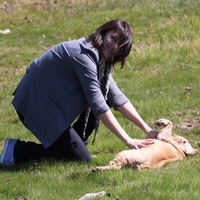Поправка на реальность. Важный пост для меня. Когда ВК начинался, мы общались здесь с теми, кого знаем лично. Потом появились комменты, подписки, круг общения начал расти, в нем стало все больше людей, с которыми вы никогда не виделись. Когда мы начинали, общение в интернете было дополнением к реальному. Можно было позволить себе больше, чем обычно. Где-то потроллить, где-то в шутку написать грубость, где-то дурачиться. Все всё понимали, т.к. хорошо знали друг друга вживую. Это было что-то вроде ролевой игры. Постепенно эти роли формировали стиль общения в сети. Самобытный стиль, оторванный от личности человека. Литературный персонаж.
Этой осенью я случайно узнал, что есть много людей, которые воспринимают общение в интернете буквально. Как если бы это был диалог лицом к лицу. Этот факт было так сложно принять, что в следующие месяцы я собирал отзывы. Новые знакомые сходились во мнении что мой образ в интернете радикально отличается от живого общения. Они были искренне удивлены какой я вживую, а я был искренне удивлен что они всерьез думали что вживую можно быть точно таким же, как в сети. Это так же странно, как, не знаю, отождествлять Гермиону и Эмму Уотсон. Корреляции между живыми людьми и образами в сети безусловно есть. Но как можно не отделять форму от содержания?!
Самые умные, порядочные, приятные в живом общении мои знакомые, например, вообще не умеют писать в интернете. Они ставят много смайликов или пишут в шутку лютую ахинею, не попадая в стиль и контекст. Их никто не учил общаться в сети. Но не быть хорошим писателем не равно быть плохим или глупым человеком. Как и в обратную сторону: красивое выражение мыслей не означает что мысли ценные (привет блогам о психологии в жж).
Соцсети всегда были для меня площадкой для, простите за пафос, творческого самовыражения. Я редко писал посты и комменты напрямую, обычно в них много скрытых смыслов или целей. Например, если я активно спорю — это не значит что я самодурственно придерживаюсь позиции, а ровно наоборот — скорее всего я в ней сомневаюсь и проверяю на прочность, подставляя под огонь вашей критики. Или вот был пост, где я делюсь провалом в своей эрудиции, в нем сразу восемь смыслов:
1. Закалка самоиронии.
2. Снижение снобизма среди друзей: я уверен что каждый имеет провалы в эрудиции, невозможно знать всё, и относиться к людям из-за этого предвзято — неразумно.
3. Поделиться интересным фактом для тех, у кого такой же провал в знаниях.
4. Выявить снобов среди друзей :).
5. Стимулировать людей делиться в комментах косяками во имя пункта 2.
6. Снизить снобизм в себе: напоминание о том, что нельзя быть предвзятым к людям, когда ты сам легко можешь быть поводом для чужого снобизма.
7. Просто выход из зоны комфорта, во имя веселья и хаоса.
8. Снять напряжение у людей, которые переживают из-за каких-то провалов в своей эрудиции в обществе снобов. Мне не жалко, а им будет легче. Публично писать неловкие вещи полезно для всех.
Недавно очередной раз узнал, что из моих текстов люди делают серьезные выводы обо мне или моих взглядах, и это влияет на живое общение (по крайней мере, поначалу). Друзья, интернет для меня особая среда. Здесь сложился какой-то образ, уж какой есть. Кто-то называл это блогерской школой Артемия Лебедева, не самая лучшая школа, но и не самая плохая. Важно, что мои тексты далеко не всегда нужно трактовать буквально, как речь от первого лица. Пожалуйста, постарайтесь не делать выводов на основе текстов. Вживую все иначе. Я вежливый, интроверт, за мир во всем мире, и почти все мои реальные взгляды гораздо мягче и вдумчивее, чем я их формулирую где-то в интернете. Не у всех получается разделять контексты, и это нормально. Просто примите на веру.
Этой осенью я случайно узнал, что есть много людей, которые воспринимают общение в интернете буквально. Как если бы это был диалог лицом к лицу. Этот факт было так сложно принять, что в следующие месяцы я собирал отзывы. Новые знакомые сходились во мнении что мой образ в интернете радикально отличается от живого общения. Они были искренне удивлены какой я вживую, а я был искренне удивлен что они всерьез думали что вживую можно быть точно таким же, как в сети. Это так же странно, как, не знаю, отождествлять Гермиону и Эмму Уотсон. Корреляции между живыми людьми и образами в сети безусловно есть. Но как можно не отделять форму от содержания?!
Самые умные, порядочные, приятные в живом общении мои знакомые, например, вообще не умеют писать в интернете. Они ставят много смайликов или пишут в шутку лютую ахинею, не попадая в стиль и контекст. Их никто не учил общаться в сети. Но не быть хорошим писателем не равно быть плохим или глупым человеком. Как и в обратную сторону: красивое выражение мыслей не означает что мысли ценные (привет блогам о психологии в жж).
Соцсети всегда были для меня площадкой для, простите за пафос, творческого самовыражения. Я редко писал посты и комменты напрямую, обычно в них много скрытых смыслов или целей. Например, если я активно спорю — это не значит что я самодурственно придерживаюсь позиции, а ровно наоборот — скорее всего я в ней сомневаюсь и проверяю на прочность, подставляя под огонь вашей критики. Или вот был пост, где я делюсь провалом в своей эрудиции, в нем сразу восемь смыслов:
1. Закалка самоиронии.
2. Снижение снобизма среди друзей: я уверен что каждый имеет провалы в эрудиции, невозможно знать всё, и относиться к людям из-за этого предвзято — неразумно.
3. Поделиться интересным фактом для тех, у кого такой же провал в знаниях.
4. Выявить снобов среди друзей :).
5. Стимулировать людей делиться в комментах косяками во имя пункта 2.
6. Снизить снобизм в себе: напоминание о том, что нельзя быть предвзятым к людям, когда ты сам легко можешь быть поводом для чужого снобизма.
7. Просто выход из зоны комфорта, во имя веселья и хаоса.
8. Снять напряжение у людей, которые переживают из-за каких-то провалов в своей эрудиции в обществе снобов. Мне не жалко, а им будет легче. Публично писать неловкие вещи полезно для всех.
Недавно очередной раз узнал, что из моих текстов люди делают серьезные выводы обо мне или моих взглядах, и это влияет на живое общение (по крайней мере, поначалу). Друзья, интернет для меня особая среда. Здесь сложился какой-то образ, уж какой есть. Кто-то называл это блогерской школой Артемия Лебедева, не самая лучшая школа, но и не самая плохая. Важно, что мои тексты далеко не всегда нужно трактовать буквально, как речь от первого лица. Пожалуйста, постарайтесь не делать выводов на основе текстов. Вживую все иначе. Я вежливый, интроверт, за мир во всем мире, и почти все мои реальные взгляды гораздо мягче и вдумчивее, чем я их формулирую где-то в интернете. Не у всех получается разделять контексты, и это нормально. Просто примите на веру.
Correction for reality. Important post for me. When VC started, we talked here with those we personally know. Then there were comments, subscriptions, the circle of friends began to grow, it became more and more people with whom you have never met. When we started, communication on the Internet was in addition to real. One could afford more than usual. Somewhere to troll, somewhere to joke write rudeness, somewhere to fool around. Everyone understood everything, because knew each other well live. It was a bit of a role-playing game. Gradually, these roles formed the style of communication on the network. Original style, divorced from the personality of a person. Literary character.
This fall, I accidentally found out that there are many people who take communication on the Internet literally. As if it were a face-to-face dialogue. This fact was so hard to accept that in the following months I collected feedback. New acquaintances agreed that my image on the Internet is radically different from live communication. They were sincerely surprised how live I was, and I was genuinely surprised that they seriously thought that live you can be exactly the same as on the network. It's as strange as, I don't know, identifying Hermione and Emma Watson. There are certainly correlations between living people and images on the net. But how can one not separate the form from the content ?!
The most intelligent, decent, pleasant in live communication, my friends, for example, do not know how to write on the Internet. They put a lot of emoticons or jokingly write fierce nonsense, without falling into style and context. Nobody taught them to communicate on the network. But to not be a good writer is not to be a bad or stupid person. As in the opposite direction: a beautiful expression of thoughts does not mean that thoughts are valuable (hello blogs about psychology in Livejournal).
Social networks have always been for me a platform for, excuse me for pathos, creative self-expression. I rarely wrote posts and comments directly, usually they have a lot of hidden meanings or goals. For example, if I am actively arguing, this does not mean that I am self-righteously holding a position, but exactly the opposite - most likely I doubt it and test it for strength, putting it under fire from your criticism. Or here was a post where I share a failure in my erudition, it immediately has eight meanings:
1. The tempering of self-irony.
2. Decrease in snobbery among friends: I am sure that everyone has failures in erudition, it is impossible to know everything, and treating people because of this is biased is unreasonable.
3. Share an interesting fact for those who have the same knowledge gap.
4. Identify snobs among friends :).
5. Encourage people to share in the comments with jambs in the name of paragraph 2.
6. Reduce snobbery in yourself: a reminder that you can not be biased towards people when you yourself can easily be an occasion for someone else's snobbery.
7. Just exit the comfort zone, in the name of fun and chaos.
8. Relieve stress in people who are experiencing some kind of failure in their erudition in the society of snobs. I do not mind, but it will be easier for them. Publicly writing awkward things is good for everyone.
Recently, I once again learned that from my texts people make serious conclusions about me or my views, and this affects live communication (at least at first). Friends, the Internet is a special environment for me. Some kind of image has developed here. Someone called it the blogging school of Artemy Lebedev, not the best school, but not the worst. It is important that my texts do not always need to be interpreted literally, like first-person speech. Please try not to draw conclusions based on texts. Live it all differently. I am polite, introvert, for world peace, and almost all of my real views are much softer and more thoughtful than I formulate them somewhere on the Internet. Not everyone can share contexts, and that's fine. Just take it on faith.
This fall, I accidentally found out that there are many people who take communication on the Internet literally. As if it were a face-to-face dialogue. This fact was so hard to accept that in the following months I collected feedback. New acquaintances agreed that my image on the Internet is radically different from live communication. They were sincerely surprised how live I was, and I was genuinely surprised that they seriously thought that live you can be exactly the same as on the network. It's as strange as, I don't know, identifying Hermione and Emma Watson. There are certainly correlations between living people and images on the net. But how can one not separate the form from the content ?!
The most intelligent, decent, pleasant in live communication, my friends, for example, do not know how to write on the Internet. They put a lot of emoticons or jokingly write fierce nonsense, without falling into style and context. Nobody taught them to communicate on the network. But to not be a good writer is not to be a bad or stupid person. As in the opposite direction: a beautiful expression of thoughts does not mean that thoughts are valuable (hello blogs about psychology in Livejournal).
Social networks have always been for me a platform for, excuse me for pathos, creative self-expression. I rarely wrote posts and comments directly, usually they have a lot of hidden meanings or goals. For example, if I am actively arguing, this does not mean that I am self-righteously holding a position, but exactly the opposite - most likely I doubt it and test it for strength, putting it under fire from your criticism. Or here was a post where I share a failure in my erudition, it immediately has eight meanings:
1. The tempering of self-irony.
2. Decrease in snobbery among friends: I am sure that everyone has failures in erudition, it is impossible to know everything, and treating people because of this is biased is unreasonable.
3. Share an interesting fact for those who have the same knowledge gap.
4. Identify snobs among friends :).
5. Encourage people to share in the comments with jambs in the name of paragraph 2.
6. Reduce snobbery in yourself: a reminder that you can not be biased towards people when you yourself can easily be an occasion for someone else's snobbery.
7. Just exit the comfort zone, in the name of fun and chaos.
8. Relieve stress in people who are experiencing some kind of failure in their erudition in the society of snobs. I do not mind, but it will be easier for them. Publicly writing awkward things is good for everyone.
Recently, I once again learned that from my texts people make serious conclusions about me or my views, and this affects live communication (at least at first). Friends, the Internet is a special environment for me. Some kind of image has developed here. Someone called it the blogging school of Artemy Lebedev, not the best school, but not the worst. It is important that my texts do not always need to be interpreted literally, like first-person speech. Please try not to draw conclusions based on texts. Live it all differently. I am polite, introvert, for world peace, and almost all of my real views are much softer and more thoughtful than I formulate them somewhere on the Internet. Not everyone can share contexts, and that's fine. Just take it on faith.
У записи 49 лайков,
0 репостов,
1966 просмотров.
0 репостов,
1966 просмотров.
Эту запись оставил(а) на своей стене Андрей Мима








![Олег Давыдов [burunduk3] Олег Давыдов [burunduk3]](https://sun9-35.vkuserphoto.ru/s/v1/ig1/Jg60TpsWYu35aU4g8pk305pOxsehZ26EtPqZMyePJ3YNVnDAa0OMIP4R-2kEUMU4uk873NU5.jpg?quality=96&crop=167,38,829,829&as=32x32,48x48,72x72,108x108,160x160,240x240,360x360,480x480,540x540,640x640,720x720&ava=1&cs=200x200)

























































